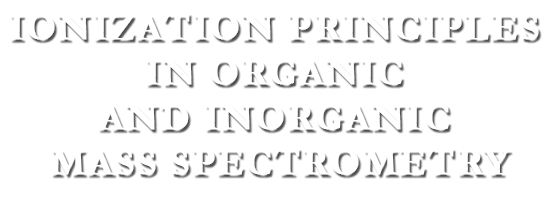INVITED SPEAKERS
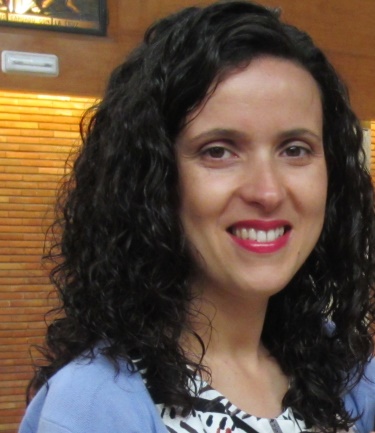 Beatriz Fernández is Research Scientist (Ramón y Cajal) at the University of Oviedo (Spain). She got her PhD in 2006 in Analytical Chemistry within the University of Oviedo. In 2006, she joined the research group of Prof. Olivier Donard in the Laboratory of Bio-inorganic and Environmental Analytical Chemistry at the CNRS in Pau (France) as Postdoctoral Fellow until July 2008. She is co-author of 60 original research publications and reviews, as well as two book chapters and one patent. She is also principal investigator of different research projects through which her research is funded. Her research interests are centered mainly in the field of spatially resolved analysis by mass spectrometry-based techniques, particularly glow discharge sources and laser ablation. Her current research is mainly focused on imaging studies of biomedical interest tissues for detection of heteroatoms and proteins.
Beatriz Fernández is Research Scientist (Ramón y Cajal) at the University of Oviedo (Spain). She got her PhD in 2006 in Analytical Chemistry within the University of Oviedo. In 2006, she joined the research group of Prof. Olivier Donard in the Laboratory of Bio-inorganic and Environmental Analytical Chemistry at the CNRS in Pau (France) as Postdoctoral Fellow until July 2008. She is co-author of 60 original research publications and reviews, as well as two book chapters and one patent. She is also principal investigator of different research projects through which her research is funded. Her research interests are centered mainly in the field of spatially resolved analysis by mass spectrometry-based techniques, particularly glow discharge sources and laser ablation. Her current research is mainly focused on imaging studies of biomedical interest tissues for detection of heteroatoms and proteins.
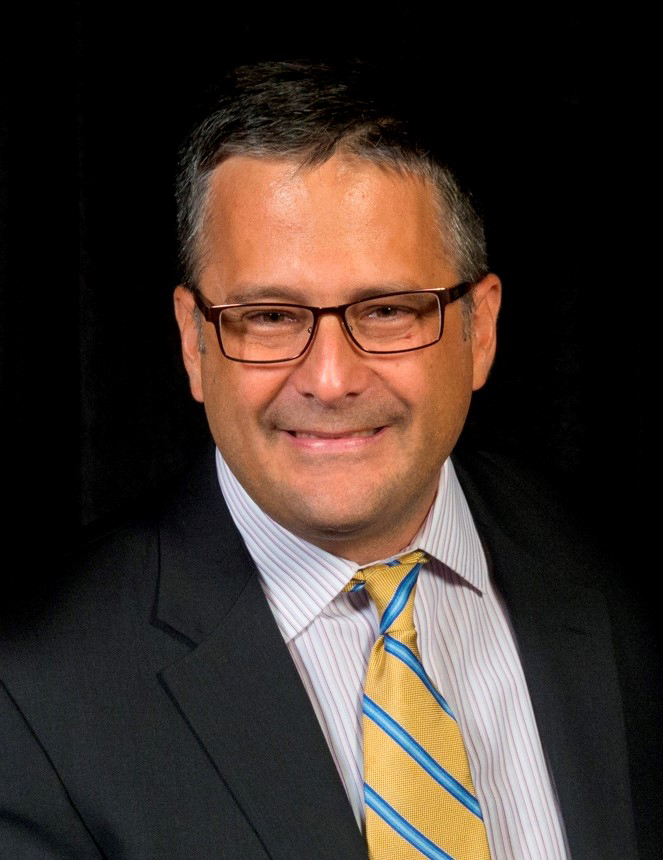 Prof. Facundo M. Fernández was born in Buenos Aires, Argentina. He received his MSc in Chemistry from the College of Exact and Natural Sciences, Buenos Aires University in 1995 and his PhD in Analytical Chemistry from the same University, in 1999. In August 2000, he joined the research group of Prof. Richard N. Zare in the Department of Chemistry at Stanford University. His work focused on several aspects of Hadamard transform time-of-flight mass spectrometry with an emphasis on coupling this technique to capillary-format separation methods. In 2002, he joined the group of Prof. Vicki Wysocki in the Department of Chemistry at the University of Arizona, to develop novel tandem mass spectrometers for proteomics. In 2004 he joined the School of Chemistry and Biochemistry at the Georgia Institute of Technology where he currently holds the position of Vasser-Woolley Professor in Bioanalytical Chemistry. He is the author of over 135 peer-reviewed publications and numerous invited presentations at international conferences. He has received several awards, including the NSF CAREER award, the CETL/BP Teaching award, the Ron A. Hites best paper award from the American Society for Mass Spectrometry, and the Beynon award from Rapid Communications in Mass Spectrometry, among others. His current research interests include the field of metabolomics, mass spectrometry imaging and the development of new ionization methods and ion mobility instrumentation for probing composition and structure in complex molecular mixtures.
Prof. Facundo M. Fernández was born in Buenos Aires, Argentina. He received his MSc in Chemistry from the College of Exact and Natural Sciences, Buenos Aires University in 1995 and his PhD in Analytical Chemistry from the same University, in 1999. In August 2000, he joined the research group of Prof. Richard N. Zare in the Department of Chemistry at Stanford University. His work focused on several aspects of Hadamard transform time-of-flight mass spectrometry with an emphasis on coupling this technique to capillary-format separation methods. In 2002, he joined the group of Prof. Vicki Wysocki in the Department of Chemistry at the University of Arizona, to develop novel tandem mass spectrometers for proteomics. In 2004 he joined the School of Chemistry and Biochemistry at the Georgia Institute of Technology where he currently holds the position of Vasser-Woolley Professor in Bioanalytical Chemistry. He is the author of over 135 peer-reviewed publications and numerous invited presentations at international conferences. He has received several awards, including the NSF CAREER award, the CETL/BP Teaching award, the Ron A. Hites best paper award from the American Society for Mass Spectrometry, and the Beynon award from Rapid Communications in Mass Spectrometry, among others. His current research interests include the field of metabolomics, mass spectrometry imaging and the development of new ionization methods and ion mobility instrumentation for probing composition and structure in complex molecular mixtures.
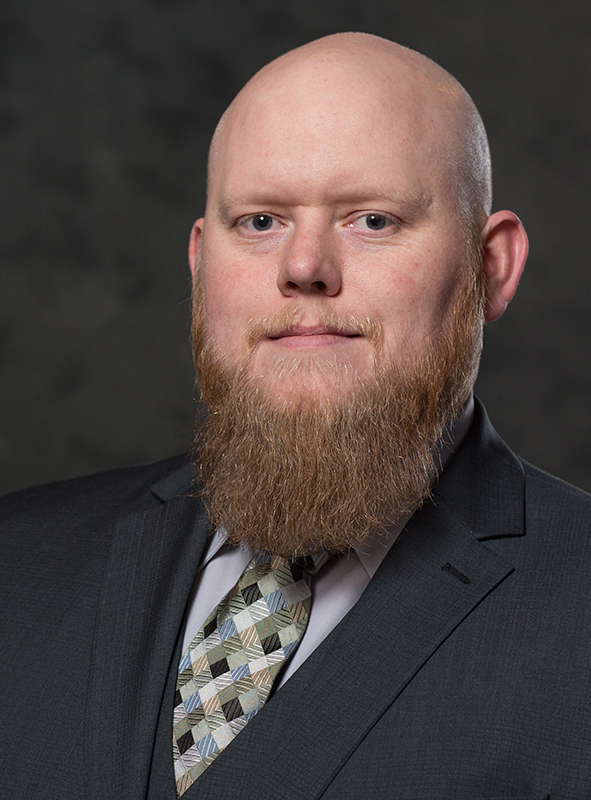 Jacob T. Shelley, Alan Paul Schulz Career Development Professor Of Chemistry
was born in Albuquerque, NM in 1984. He earned his B.S. in Chemistry from Northern Arizona University in Flagstaff, AZ in 2005. During his undergraduate career, he was a summer intern at Los Alamos National Laboratory and worked on a number of projects including metallomics with X-ray fluorescence detection, developing nanoporous silica substrates for matrix-free MALDI, and method development for detecting a wide range of radioactive materials. He completed his Ph. D. at Indiana University under Prof. Gary Hieftje in 2011 where his research focus was on the development, characterization, and application of novel plasma ionization sources for molecular mass spectrometry. Jake started his postdoctoral research with Prof. R. Graham Cooks at Purdue University 2011 where he developed portable mass spectrometers capable of in situ analyses. In 2012, Jake was awarded a prestigious Alexander von Humboldt Post-Doctoral Fellowship to work with Prof. Carsten Engelhard and Prof. Uwe Karst at the University of Münster in Germany. In 2014, Jake started his independent academic career as an Assistant Professor at Kent State University. In August, 2016, Jake became the Alan Paul Schulz Career Development Professor of Chemistry at Rensselaer Polytechnic Institute in Troy, NY. Prof. Shelley has authored 35 published journal articles, 3 United States patents/patent applications, a book chapter, and has given more than 30 invited presentations at national and international venues.
Jacob T. Shelley, Alan Paul Schulz Career Development Professor Of Chemistry
was born in Albuquerque, NM in 1984. He earned his B.S. in Chemistry from Northern Arizona University in Flagstaff, AZ in 2005. During his undergraduate career, he was a summer intern at Los Alamos National Laboratory and worked on a number of projects including metallomics with X-ray fluorescence detection, developing nanoporous silica substrates for matrix-free MALDI, and method development for detecting a wide range of radioactive materials. He completed his Ph. D. at Indiana University under Prof. Gary Hieftje in 2011 where his research focus was on the development, characterization, and application of novel plasma ionization sources for molecular mass spectrometry. Jake started his postdoctoral research with Prof. R. Graham Cooks at Purdue University 2011 where he developed portable mass spectrometers capable of in situ analyses. In 2012, Jake was awarded a prestigious Alexander von Humboldt Post-Doctoral Fellowship to work with Prof. Carsten Engelhard and Prof. Uwe Karst at the University of Münster in Germany. In 2014, Jake started his independent academic career as an Assistant Professor at Kent State University. In August, 2016, Jake became the Alan Paul Schulz Career Development Professor of Chemistry at Rensselaer Polytechnic Institute in Troy, NY. Prof. Shelley has authored 35 published journal articles, 3 United States patents/patent applications, a book chapter, and has given more than 30 invited presentations at national and international venues.
Prof. Shelley’s current research interests lie in the development of new hardware and software tools for mass spectrometry, which enable rapid and sensitive detection and identification of analytes in complex matrices. Specifically, his group approaches these tasks through development, fundamental characterization, and application of instrumentation. Currently, Prof. Shelley’s group is aiming to expand the capabilities of ambient mass spectrometry through added dimensionality of analysis without compromising the speed of the analysis. The goal is to develop an ionization source, which operates at atmospheric pressure that can provide molecular, structural, and atomic information of species present on a sample surface. Overall, this research addresses a major focus of modern analytical chemistry – rapid, in situ detection of relevant compounds without the need for sample modification or a priori information of sample constituents. Such methods of analysis are needed in a wide range of areas including homeland security, drug development and production, chemical synthesis, and environmental analyses.
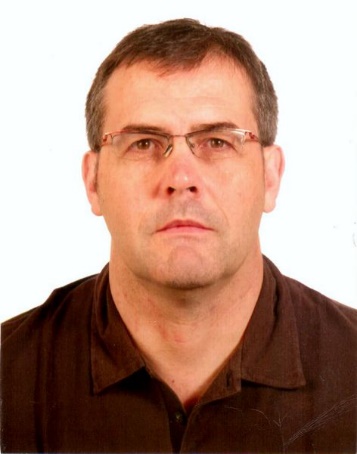 José Miguel Vadillo holds an Associate Professor position at the Department of Analytical Chemistry at University of Malaga, being a member of the UMA LASERLAB (laser.uma.es) where develops his research. He got a B.S. in Biology (with a concentration in Immunology) at the University of Navarra and a PhD in Chemistry at the University of Malaga. After preliminary research on liquid chromatography and capillary electrophoresis, he focused his PhD in the combined use of lasers with optical spectroscopy and mass spectrometry as an analytical tool. Additionally, he has developed research on secondary ion mass spectrometry (SIMS), ultrafast laser spectroscopy, pulsed laser deposition (PLD), fundamental aspects of laser ablation, and mass spectrometry techniques combines with laser ionization/desorption. In recent years, the combined use of differential mobility analyzers (DMA) coupled to mass spectrometry, and atmospheric-pressure sources as DART or SESI have been added to his research activity.
José Miguel Vadillo holds an Associate Professor position at the Department of Analytical Chemistry at University of Malaga, being a member of the UMA LASERLAB (laser.uma.es) where develops his research. He got a B.S. in Biology (with a concentration in Immunology) at the University of Navarra and a PhD in Chemistry at the University of Malaga. After preliminary research on liquid chromatography and capillary electrophoresis, he focused his PhD in the combined use of lasers with optical spectroscopy and mass spectrometry as an analytical tool. Additionally, he has developed research on secondary ion mass spectrometry (SIMS), ultrafast laser spectroscopy, pulsed laser deposition (PLD), fundamental aspects of laser ablation, and mass spectrometry techniques combines with laser ionization/desorption. In recent years, the combined use of differential mobility analyzers (DMA) coupled to mass spectrometry, and atmospheric-pressure sources as DART or SESI have been added to his research activity.
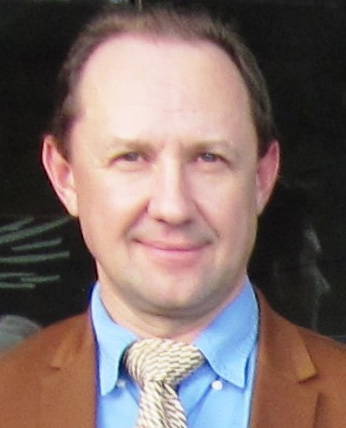 Roman Zubarev was trained (M.Sc.) in Engineering Physics at the Moscow Institute for Engineering Physics, USSR, and received PhD in Ion Physics from the Uppsala University, Sweden, in 1997. After postdoc training with Fred W. McLafferty in Cornell University, USA, he became associate professor of biological mass spectrometry at the Chemistry Department in Odense University, Denmark. In 2002 Dr. Zubarev came back to Uppsala as professor of proteomics. In 2009 he has moved to Karolinska Institutet in Stockholm, taking a professorship in medicinal proteomics. Among his scientific achievements, Dr. Zubarev has pioneered electron capture dissociation and related fragmentation techniques, and has formulated and verified the Isotopic resonance hypothesis. For his contribution to mass spectrometry he has been awarded by the Carl Brunnee award (IMSC, 2006), Biemann medal (ASMS, 2007) and a Gold medal (Russian MS Society, 2013). Dr. Zubarev has published more than 250 peer-reviewed papers, and has several patents.
Roman Zubarev was trained (M.Sc.) in Engineering Physics at the Moscow Institute for Engineering Physics, USSR, and received PhD in Ion Physics from the Uppsala University, Sweden, in 1997. After postdoc training with Fred W. McLafferty in Cornell University, USA, he became associate professor of biological mass spectrometry at the Chemistry Department in Odense University, Denmark. In 2002 Dr. Zubarev came back to Uppsala as professor of proteomics. In 2009 he has moved to Karolinska Institutet in Stockholm, taking a professorship in medicinal proteomics. Among his scientific achievements, Dr. Zubarev has pioneered electron capture dissociation and related fragmentation techniques, and has formulated and verified the Isotopic resonance hypothesis. For his contribution to mass spectrometry he has been awarded by the Carl Brunnee award (IMSC, 2006), Biemann medal (ASMS, 2007) and a Gold medal (Russian MS Society, 2013). Dr. Zubarev has published more than 250 peer-reviewed papers, and has several patents.

